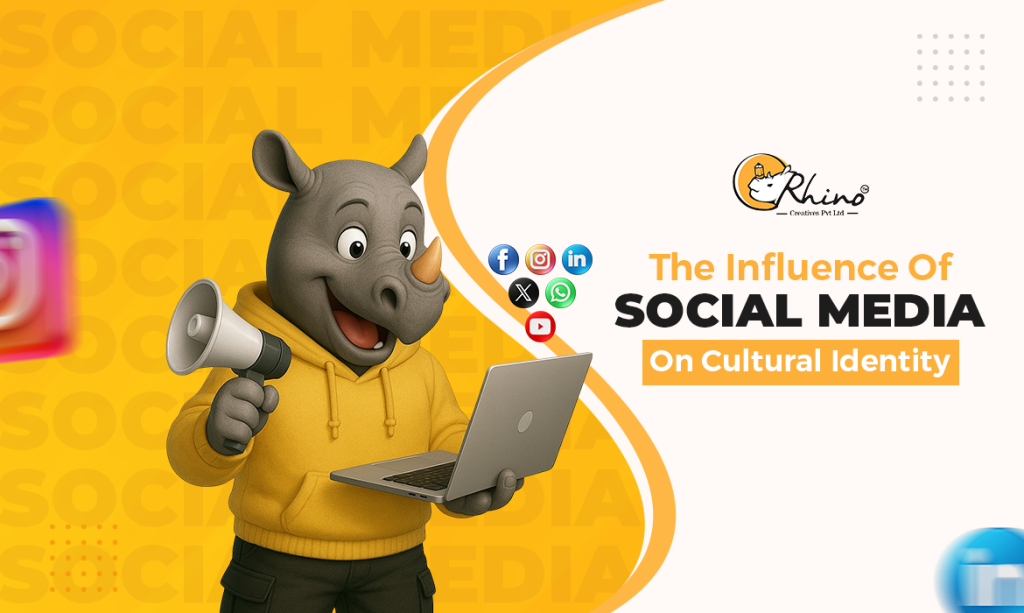Social media is transforming the way individuals communicate and express themselves. In today’s hyperconnected world, people are sharing their cultural heritage and traditional beliefs with global audiences like never before. While this creates a space for cultural celebration and community building, it also raises concerns about cultural disruption and misrepresentation.
The Role Of Social Media In Cultural Identity Formation
Cultural identity is shaped by beliefs, language, customs, and traditions. Social media plays a vital role in how this identity is embraced, shared, and transformed. As digital platforms become embedded in our daily lives, they also reshape how we perceive and portray culture.
By expressing cultural values openly and on a global scale, individuals become more intentional and effective communicators. Their heritage is no longer confined to local spaces—it spreads, evolves, and influences others across borders.
Global Exposure
Platforms like Instagram, Facebook, TikTok, YouTube, and Pinterest have made it easy to share cultural stories, rituals, fashion, festivals, and more. These platforms offer instant global exposure, helping cultures reach audiences that were once out of reach.
Self-Expression
People now use photos, videos, reels, and written posts to showcase their heritage and customs. This digital storytelling empowers users to celebrate their roots while inviting others to learn, understand, and appreciate cultural diversity.
Community Building
Social media enables people to connect with those who share similar cultural backgrounds or interests. It fosters dialogue, identity reinforcement, and solidarity, especially among diaspora communities. These connections contribute to a deeper sense of belonging.
Language And Communication
Online communication encourages the evolution of language—introducing slang, hybrid languages, and new expressions. This not only reflects cultural fusion but also transforms how language itself is understood and used across regions.
Positive Impacts Of Social Media On Cultural Identity
Cultural Exchange
Social media acts as a bridge between cultures. People learn from each other, explore different lifestyles, and gain broader worldviews through shared stories, traditions, and experiences.
Preservation Of Traditions
By posting cultural practices, rituals, and oral histories online, communities can document and preserve them for future generations. This digital archive becomes a modern-day time capsule.
Empowerment Of Marginalized Groups
Social media platforms amplify the voices of underrepresented communities, providing them with a global stage to share their narratives, struggles, and achievements.
Educational Opportunities
From historical art to indigenous practices, social platforms offer a wealth of cultural education. They not only spark curiosity but also create jobs and learning opportunities in digital education and media sectors.
Challenges Of Social Media On Cultural Identity
Cultural Homogenization
Trending content can overshadow authentic traditions, leading to a loss of diversity. Cultural expressions may become overly simplified or commercialized to appeal to mass audiences.
Stereotyping And Misrepresentation
False portrayals and shallow representations can perpetuate harmful stereotypes, distorting public perceptions of cultures and communities.
Commercialization Of Culture
Cultural symbols and practices are often used in marketing without respect for their original meaning, stripping them of their sacred or historical significance.
Loss Of Cultural Privacy
When inaccurate or offensive cultural messages go viral, they can affect entire communities and traditions—sometimes resulting in real-world backlash or conflict.
Balancing Social Media And Cultural Identity
Social media has the power to both preserve and harm cultural heritage. The key lies in using it responsibly.
Promote Authentic Representation
Encourage truthful and respectful sharing of cultural practices. This helps preserve authenticity and prevents misuse.
Engage In Critical Consumption
Be cautious with the information you consume and share. Verify facts, question misleading posts, and avoid spreading misinformation.
Support Local And Indigenous Creators
Uplift the voices of those who authentically represent their communities. Their content offers genuine perspectives and contributes to cultural richness online.
Encourage Digital Literacy
Educate users especially younger audiences on how to critically analyse content, understand context, and share responsibly. Awareness is key to meaningful cultural exchange.
Conclusion
Social media has a profound influence on cultural identity. It opens doors to connection, education, and cultural celebration, but it also poses challenges such as stereotyping, misrepresentation, and cultural erosion. When used mindfully, social platforms can help individuals and communities protect, share, and evolve their heritage while staying connected in an increasingly digital world.

